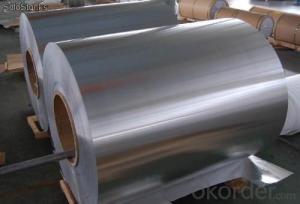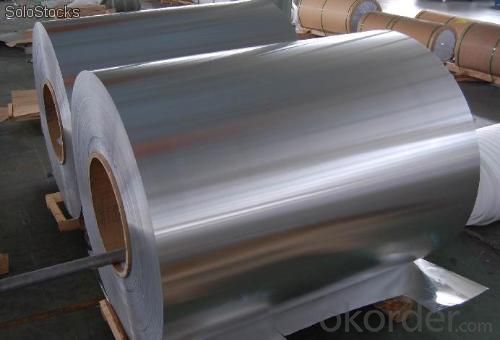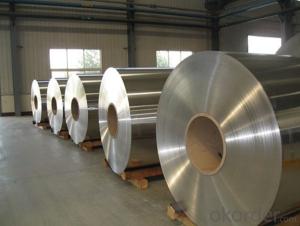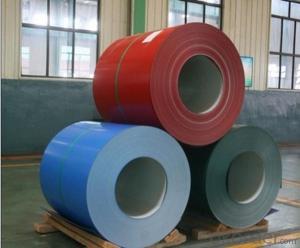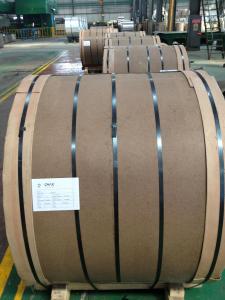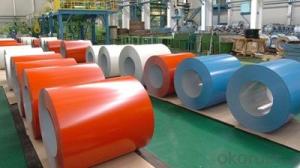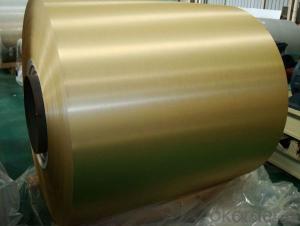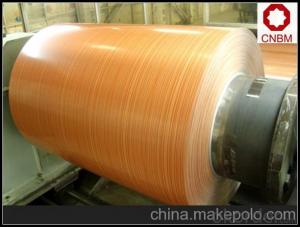Aluminum Coil Anodizing Corporation Aca - Hot Sale AA1100 Aluminum Coil/Roll
- Loading Port:
- Shanghai
- Payment Terms:
- TT OR LC
- Min Order Qty:
- 5 m.t.
- Supply Capability:
- 1000000 m.t./month
OKorder Service Pledge
OKorder Financial Service
You Might Also Like
1.Structure of Alumunum Coil/Roll in Hot Sale AA1100:
Alumunum Coil/Roll in Hot Sale AA1100is designed for many field such as electronics, instruments, lighting decoration, packing industry, and house decoration, curtain wall, honeycomb-core panel, sandwich panel, aluminum composite panel, aluminum composite pipe etc.. Alumunum Coil/Roll in Hot Sale AA1100 is hard and everlasting under the blazing sun. You can choose the alloys as your habitation and we will do our best to meet your requests.
2.Main Features of Alumunum Coil/Roll in Hot Sale AA1100:
• Smooth surface
• High manufacturing accuracy
• High strength of extension and yield
• Well packaged
• No marks, no scratch, no excessive oil
3. Alumunum Coil/Roll
Alloy: | AA1050, 1060, 1070, 1100, 3003, 3004, 3005, 3105, 5052, 5083, 5754, 8011, 8006 |
Temper: | H14, H16, H18, H22, H24, H26, H32, O/F |
Thickness: | 0.2-100mm |
Width: | 30mm-1700mm |
4. Production of Alumunum Coil/Roll in Hot Sale AA1100
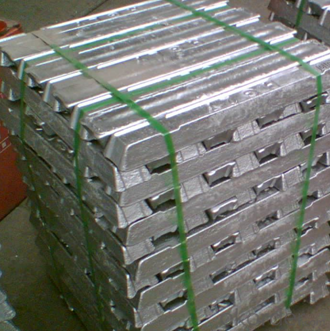
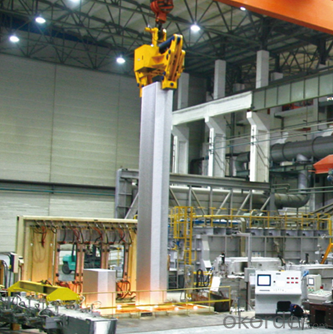
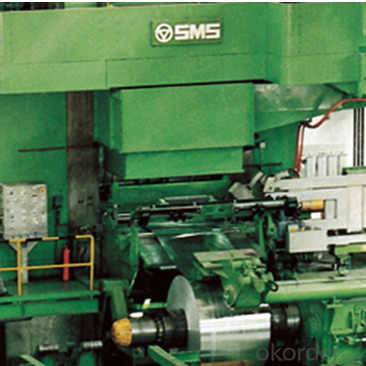
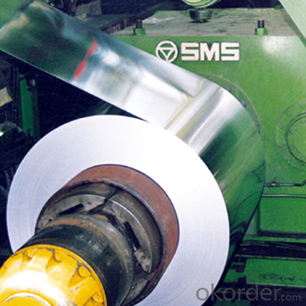
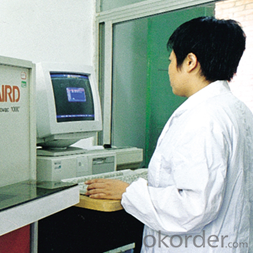
5.FAQ
We have organized several common questions for our clients,may help you sincerely:
① How about your company?
A world class manufacturer & supplier of aluminum coil and alloy blanks. Aluminum production base is comprised of 18 aluminum annealers, 10 coil and foil mills, 4 continuous production lines, 2 hot rolling production line and 3 prepainted lines.
Export 5000 tons per month to Asia, America and Middle East. Always do the best for our clients.
②Can you guarantee the quality of the products?
We are responsible for the quality of materials to get a long-term cooperation with clients in a reasonable period of time and we are glad to arrange and coordinate any third party inspection for you.
③What is the delivery time after purchase?
35 day after receiving client’s deposit or correct LC
- Q: What are the production processes of aluminum coil and what are the functions of various industrial furnaces in the production of aluminum? The more detailed, the better. Thank you! Points!
- There are aluminum annealing furnace, aluminum alloy quenching furnace, aging furnace and smelting furnace.
- Q: Is it possible to recycle aluminum coils in various countries around the world?
- <p>Yes, aluminum coils can be recycled in many countries around the world. Recycling aluminum is a global practice due to its high value and the energy savings associated with recycling compared to producing aluminum from raw materials. Different countries have their own recycling programs and facilities that handle aluminum waste, including coils. However, the specific regulations and processes for recycling aluminum coils can vary by country, and it's important to check local recycling guidelines to ensure proper disposal and recycling.</p>
- Q: Can aluminum coils be used in the production of cryogenic storage tanks?
- Yes, aluminum coils can be used in the production of cryogenic storage tanks. Aluminum is a suitable material for cryogenic applications due to its low density, high thermal conductivity, and excellent corrosion resistance. These properties make it ideal for storing and transporting cryogenic liquids such as liquid nitrogen, oxygen, and argon. Aluminum coils can be used to fabricate the inner shell of the storage tank, providing a lightweight and durable solution. Additionally, aluminum is easily formable, allowing for the creation of complex tank shapes and designs. However, it is important to note that aluminum has a higher coefficient of thermal expansion compared to other materials like stainless steel, so proper design considerations must be taken to accommodate for thermal contraction and expansion during cryogenic operations.
- Q: Is it possible to join steel coils using arc welding or gas welding techniques?
- <p>Yes, steel coils can be welded together using both arc welding and gas welding methods. Arc welding, specifically processes like Shielded Metal Arc Welding (SMAW) and Gas Metal Arc Welding (GMAW), is commonly used for joining steel due to its strength and versatility. Gas welding, which uses a fuel gas and an oxygen mixture to produce a flame, is also suitable for steel welding, although it may be less common in industrial settings due to the higher heat input and potential for distortion. Proper techniques and equipment are essential to ensure a strong, durable weld and to avoid defects such as cracking or warping.</p>
- Q: How are aluminum coils priced?
- Various factors contribute to the pricing of aluminum coils. These factors include the current market price of aluminum, the size and thickness of the coils, the quantity being purchased, and any additional customization or processing requirements. The market price of aluminum is influenced by factors such as supply and demand, global economic conditions, and trade policies. The cost of the coils can be influenced by their size and thickness, as larger or thicker coils typically require more raw materials and production time. The price may also be affected by the quantity being purchased, with larger orders potentially receiving volume discounts. Furthermore, any additional customization or processing, such as coating or shaping, can impact the overall price. In summary, the pricing of aluminum coils is a complex process that considers various factors relating to production costs and market conditions.
- Q: Are there any specific regulations or standards for aluminum coil production?
- Yes, there are specific regulations and standards for aluminum coil production. These regulations and standards are put in place to ensure the quality, safety, and sustainability of the production process. One of the most important standards for aluminum coil production is the American Society for Testing and Materials (ASTM) International standard. ASTM B209 is the standard specification for aluminum and aluminum-alloy sheet and plate, which includes the requirements for aluminum coil production. This standard specifies the chemical composition, mechanical properties, and other technical requirements that the aluminum coil must meet. In addition to ASTM standards, there are also regulations and standards set by regulatory bodies such as the International Organization for Standardization (ISO) and the Occupational Safety and Health Administration (OSHA). ISO 9001 is a widely recognized standard for quality management systems, and ISO 14001 is for environmental management systems. These standards provide guidelines and requirements for the production process to ensure quality, environmental responsibility, and worker safety. Furthermore, specific regulations may vary by country or region. For example, in the United States, the Environmental Protection Agency (EPA) regulates the emissions and waste disposal associated with aluminum coil production through the Clean Air Act and the Resource Conservation and Recovery Act (RCRA). These regulations aim to minimize the environmental impact of the production process. Overall, the regulations and standards for aluminum coil production are in place to uphold the quality, safety, and environmental sustainability of the industry. Compliance with these regulations and standards is essential for manufacturers to ensure that their products meet the required specifications and are produced in a responsible manner.
- Q: Are aluminum coils applicable in the manufacturing process of automobiles?
- <p>Yes, aluminum coils are widely used in automobile manufacturing. They are utilized in various components such as engine parts, body panels, and wheels due to their lightweight, corrosion resistance, and strength. Aluminum's recyclability and energy efficiency also make it an environmentally friendly choice for the automotive industry.</p>
- Q: Why there is always impression and indentation on the backup roller of aluminum coil rolling mill with 4 rollers.
- Perhaps there is something wrong in the position controlling the working roller tilt and bend positive and negative convexity, making the working roller out of order and rubbing against the backup roller.
- Q: What are the different thickness tolerances for aluminum coils?
- The different thickness tolerances for aluminum coils can vary depending on the specific application and industry standards. However, common thickness tolerances for aluminum coils range from +/- 0.002 inches to +/- 0.010 inches, ensuring precision and consistency in the manufacturing process.
- Q: I was wandering, if your spear's shaft is made of aluminum, does that have any strength to it, i mean, say you had to block with the shaft, would a weapon break through like your basic sword or basic axe, i don't mean big heavy swords and axes, but like average ones, could it break through an aluminum shaft of a spear?
- nice question dear.. but strength is depend upon the hardness of material.. if that spear's shaft is hollow it can withstand up to certain level only for slow strikes.. but shaft is a rod hopefully i can say block using that even with a basic katana and Axe.. and one more thing your should strike as sparring and for fighting..
Send your message to us
Aluminum Coil Anodizing Corporation Aca - Hot Sale AA1100 Aluminum Coil/Roll
- Loading Port:
- Shanghai
- Payment Terms:
- TT OR LC
- Min Order Qty:
- 5 m.t.
- Supply Capability:
- 1000000 m.t./month
OKorder Service Pledge
OKorder Financial Service
Similar products
Hot products
Hot Searches
Related keywords
